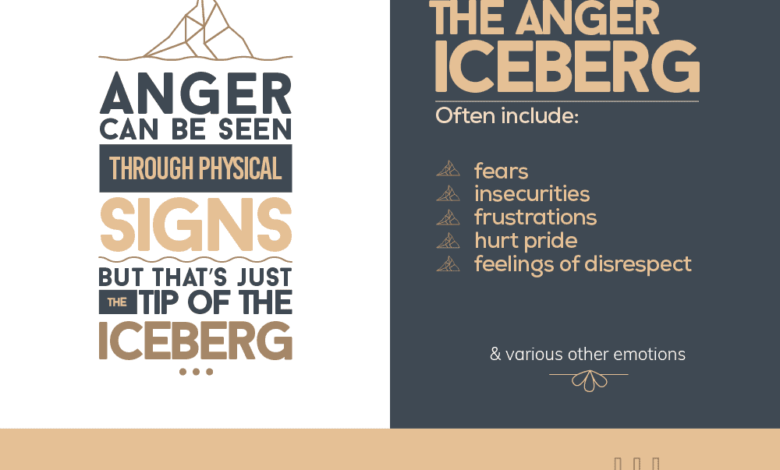The Relationship Between Anger and Alcohol

Have you ever been called a “angry drunk” by your friends? An often-cited body of studies by the World Health Organization states that aggressiveness has a stronger relationship to alcohol than any other type of psychoactive medication. Getting angry or irritable while you drink is a fairly frequent feeling. However, why does alcohol aggravate some people? There are several risk factors, and each one affects individuals differently.
Read on to find out more about the connection between alcohol and rage, including risk factors, how aggressiveness brought on by alcohol may be deadly, and more. Understanding how alcohol consumption affects your mood might help you avoid making decisions you’ll later regret.
- Aggression and Anger: Their Relationship
- Common Risk Factors for Alcohol-Related Violence
- The Consequences of Alcohol-Related Violence
- How to Avoid and Address Alcohol-Related Violence
Aggression and Anger: Their Relationship
The relationship between rage and aggressiveness has long been the subject of research. There’s a reason why the cliché of the irate alcoholic is so well-known. Alcohol consumption, however, is about more than just being quickly agitated or having a short fuse. Alcohol with fury may have dangerous results that can traumatize both the intoxicated individual and those around them.
What Separates Anger and Aggression ?
Between rage and violence, there is a key contrast. Aggression, in contrast to anger, is a hostile conduct that causes harm to oneself or others physically or psychologically. Anger is a feeling that you have when you feel threatened. Some people have a personality attribute known as “trait anger,” which means they are always on the lookout for things that will make them furious.
Unless anything is done to stop the situation, anger usually results in hostility. Help from a friend may be able to calm an inebriated person down if they become irritated because the bartender declined to serve them. If no one can diffuse the tenseness, they could start acting aggressively and the scenario might turn violent.
Alcohol Effects and Your Behavior
Alcohol is a psychoactive substance, therefore it briefly affects your sensations, perception, and mood. People who are intoxicated may feel more outgoing, lonely, cheerful, or even furious. These feelings have the potential to become extremely heightened. For instance, if you begin drinking when you’re feeling lonely and depressed, you could discover that the alcohol makes you feel even more alone and upset than you did when you were sober.
Alcohol can sometimes make people more likely to act violently when they are furious. Even while it’s not always the case, the likelihood is higher. Alcohol may make a little irritation into a frustrating one.
Alcohol Myopia: What Is It?
In addition to their already heightened emotions, persons who are angry may also have a condition known as “alcohol myopia”. In this case, being drunk causes you to lose your sense of perception. Because of this, you could act aggressively when you should otherwise be aware of the indications telling you to think more logically. Alcohol can sometimes cause us to defy reason.
Additionally, drinking alcohol might cause you to concentrate excessively on the words or actions of other individuals. At a bar or concert, if someone cuts in front of you in line for the restroom, you can become irate when ordinarily you wouldn’t mind. Drinking makes it harder and harder to make reasonable interpretations of information. You put yourself or other people in risk if you can’t see things properly.
Overall, drinking naturally heightens emotions, and for those with a propensity for aggression, it may swiftly make bad situations worse.
Common Risk Factors for Alcohol-Related Violence
Although many individuals who drink alcohol may naturally feel angry or irritated, it’s not always their fault. A person with an alcohol consumption disorder may occasionally have a problematic connection with alcohol because of certain genetics. As a result, drinking has a tendency to become a habit.
Unfortunately, there are a number of external factors that might contribute to feeling angry after drinking. People can become aggressors when drinking for a variety of reasons, including preexisting anger issues.
Men are more likely than women to struggle with alcoholism and rage. According to one study, males who consciously repressed undesired thoughts—particularly those that deviate from the “tough” masculine norm—are more prone to behave aggressively when they consume large amounts of alcohol. Men are more likely to get aggressive after drinking than women, however women can also.
Drinking patterns: People who binge drink may exhibit violent behaviors more frequently than those who consume alcohol more slowly and in moderation. Violence can happen after just one binge drinking session. So it makes logical that those who are dependent on alcohol may experience rage problems when under the influence.
Social factors: Peer pressure affects a lot of us. If your friends’ group routinely engages in aggressive behavior while drinking, you’ll probably start to experience the same feelings.
Exposure to the same harmful behaviors over time makes it simpler for you to adopt them yourself.
Mental health: Mental illness is a frequent cause of alcoholism. To deal with the symptoms of depression, anxiety, or other mood disorders, you could drink excessively. An unhealthy cycle of rage results when, for instance, persons with post-traumatic stress disorder who feel violence resort to alcohol as a release.
Stress: While some degree of stress is unavoidable and even beneficial, some individuals turn to alcohol as a way to cope with the pressure they feel in everyday life. Someone who starts drinking because they’re nervous and furious about something might soon develop a routine where they act aggressively.
Personality: Each person has a unique personality. These characteristics may influence how violent you feel after consuming alcohol. People with innate thrill-seeking inclinations may also seek out violence when intoxicated in addition to their characteristic rage. Intoxicated people have lesser inhibitions, thus seeking a “high” can rapidly become deadly.
Trauma: In certain cases, trauma may result in a vicious cycle in which victims of abuse start acting like their perpetrators. A victim of abuse or someone who is presently being abused may express their trauma by becoming angry. This aspect of your personality may only become apparent while you’re intoxicated, making it difficult to identify.
How to Avoid and Address Alcohol-Related Violence ?
Fortunately, those who experience unreasonable madness when intoxicated may take steps to stop and address their conduct.
1. Participate in a program for treating alcohol abuse
The most obvious solution to stop drinking when you’re furious is to stop drinking altogether. You can make wise judgments with a clear head if you stop abusing alcohol. Alcohol addiction therapy should be sought by those who are dependent on alcohol in order to interrupt the pattern.
2. Look for support groups for anger management
Of course, drinking may make rage problems worse. You could discover that drinking makes your anger management issues worse if a medical expert has identified them. You might find it helpful to join a support group for anger management in addition to giving up alcohol.
Although it takes time, becoming more accountable for your behavior is a critical step for those with alcohol and anger management issues. You’ll choose more wisely when it comes to drinking alcohol as you grow more self-aware. Here, a support group or therapist may be quite helpful.


